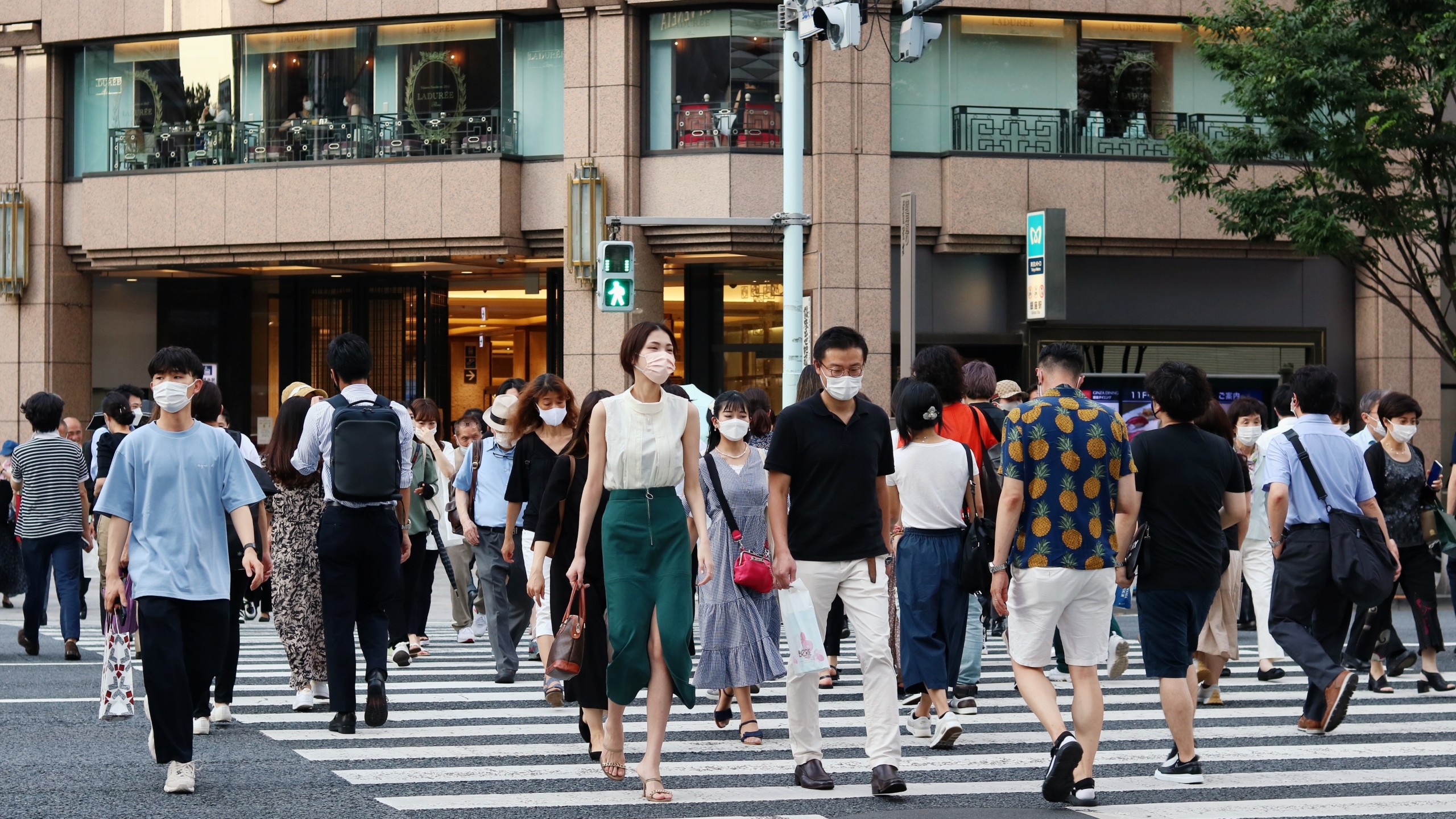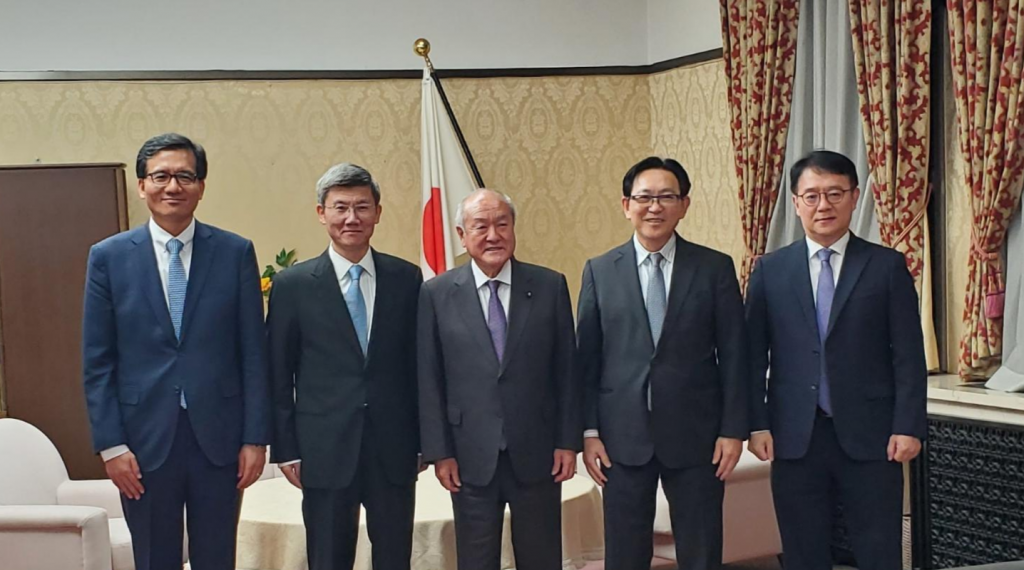
Image: Ned Snowman / Shutterstock.com
SINGAPORE, November 23, 2022 – Supported by pent-up domestic demand, the Japanese economy is expected to grow at a moderate pace in 2022. The yen’s sharp depreciation contributed to amplifying soaring imported prices while boosting corporates’ profits from overseas. As the COVID-19 pandemic moves gradually to an endemic phase, it will be vital to shift policy focus toward more flexible monetary policy and accelerated fiscal consolidation.
This preliminary assessment was made by the ASEAN+3 Macroeconomic Research Office (AMRO) after its Annual Consultation Visit to Japan from October 17 to November 11, 2022.
The mission was led by AMRO Lead Economist, Jae Young Lee. AMRO Director, Kouqing Li and Chief Economist, Hoe Ee Khor participated in the policy discussions. The talks focused on Japan’s economic recovery, prospects of economic growth and inflation, near-term risks and structural challenges, policy mix to support growth, financial stability, and fiscal soundness.
Economic developments and outlook
“The Japanese economy is projected to grow by 1.6 percent in 2022 and in 2023,” said Dr. Lee. “As the COVID-19 pandemic shifts to an endemic phase, we expect private consumption to recover in Q4 and next year, supported by pent-up demand, particularly services consumption. However, exports will be adversely affected by the anticipated slowdown in the U.S. and Europe, and continuing, albeit diminishing, global supply chain disruptions.”
The Japanese economy continues to recover at a moderate pace in 2022. Private consumption picked up moderately with resumed economic activities in the course of recovery from the pandemic. Exports continued to grow at a slower pace than in 2021.
Consumer price inflation accelerated in 2022, mainly driven by soaring energy and food prices, reaching 3.0 percent in September 2022. Stripping out fresh food and energy, core CPI inflation also rose 1.8 percent in the same month, although Japan’s inflation remains relatively weak compared to other advanced economies.
Japan’s external position stayed strong, supported by large primary income surplus and large foreign reserves. The current account surplus declined from 4.0 percent in 2021 to 2.7 percent of GDP in the first half of 2022, driven by a sharp deterioration in trade deficits, reflecting higher commodity prices.
Credit growth recovered to the pre-pandemic level at around 2-3 percent, partly attributable to continued policy supports to small- and medium-sized enterprises’ financing needs.
The fiscal deficit is expected to narrow in fiscal 2021 on the back of strong revenue after widening in fiscal 2020 in support of massive COVID-19 stimulus packages. For fiscal 2022, the government launched sizable economic packages, mainly to address higher energy and food prices and promote investment and reforms for sustainable growth, backed by two supplementary budgets.
Risks, vulnerabilities, and challenges
Japan’s macro-financial outlook is tilted to the downside with substantial uncertainties, mainly from the external sector. As Japan relies on energy imports, a resurgence of global energy prices would affect its economy by widening the trade deficit, worsening the terms of trade, and weighing down domestic consumption.
A further divergence in monetary policy between Japan and other advanced economies could lead to steeper yen depreciation and higher import prices. This may in turn enhance the effects of imported inflation on Japan’s households and small businesses.
Medium- to long-term vulnerabilities and challenges include low profitability of regional banks, weakening fiscal discipline, side-effects from prolonged monetary easing, and demographic drag from population aging and low fertility rates.
Policy recommendations
Under the baseline projection that the current high inflation will peak and start to decline in the near term, the Bank of Japan’s (BOJ’s) current easy monetary policy stance remains appropriate.
Given the rise in inflation expectations and the upside risk of a higher inflation rate becoming entrenched, the BOJ should stand ready to adjust its monetary policy, for example, by raising its 10-year JGB yield target and/or expanding the current band.
Considering the heightened uncertainties in the post-pandemic global economy, and experiences of the past decade, the BOJ’s monetary policy framework could be reviewed to allow greater flexibility by introducing a price stability target band of 1 to 3 percent.
Financial supervisory authorities should remain vigilant to ensure that financial institutions can maintain their financial soundness. Financial policy should also keep supporting financial institutions so they can adapt to a rapidly changing business environment.
With the pandemic becoming endemic, the government should put a higher priority on strengthening fiscal prudence while providing targeted supports to low-income households suffering from increases in the cost of living.
Structural reforms should be implemented with greater urgency to enhance growth potential, as growth-supporting short-term measures are gradually phased out in the post-pandemic new normal.
The government should foster supply chain diversification and digital transformation, which are critical to economic dynamism and resilience.
The government should continue its efforts to achieve the greenhouse gas emissions reduction target, while taking measures to mitigate the transition risks of its climate change policy.
The AMRO team would like to express its gratitude to the Japanese authorities and other participating organizations for their cooperation and candid exchange of views. AMRO wishes to express its appreciation for the strong support from the authorities and the excellent arrangement that has made this mission possible.
–
About AMRO
The ASEAN+3 Macroeconomic Research Office (AMRO) is an international organization established to contribute towards securing macroeconomic and financial stability of the ASEAN+3 region, comprising 10 members of the Association of Southeast Asian Nations (ASEAN) and China; Hong Kong, China; Japan; and Korea. AMRO’s mandate is to conduct macroeconomic surveillance, support the implementation of the regional financial arrangement, the Chiang Mai Initiative Multilateralisation (CMIM), and provide technical assistance to the members.

From L to R: Mr. Jae Young Lee, Group Head and Lead Economist, AMRO; Mr. Kouqing Li, Director, AMRO; Mr. Shunichi Suzuki, Minister of Finance of Japan; Mr. Hoe Ee Khor, Chief Economist, AMRO; Mr. Jinho Choi, Deputy Group Head and Senior Economist, AMRO
